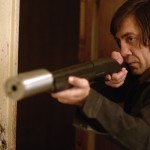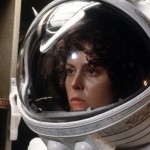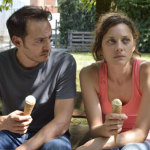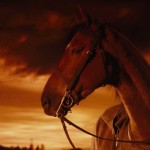The Godfather: Part III Review
I recently read an article calling The Godfather: Part III the “most reviled sequel of all-time.” It’s a debatable point, but I honestly can’t understand why. While imperfect on its own, it’s a very good addition to director Francis Ford Coppola’s transcendent crime saga. It brings the focus onto its tragic main character, Michael Corleone, as he seeks redemption. Perhaps most importantly, it offers closure. By the end of the film, we’ve spent nearly 10 hours with many of these characters, and once the final moments are shown, we can realize the incredible scope and importance of Coppola’s entire saga.
It’s the late 1970s, and Michael Corleone (Al Pacino) is close to achieving his dream—completely legitimizing his family’s business operations. Thug Joey Zasa (Joe Mantegna) runs the New York side of things (aka the illegitimate side of things), while his daughter Mary (Sofia Coppola) is in charge of the charitable foundation in his father’s name. Michael and Mary maintain a healthy relationship, but she’s pretty much the only Corleone who wants anything to do with Michael. His wife, Kay (Diane Keaton), has remarried and is still as afraid of her ex-husband as she was the day she left him. Michael’s son, Anthony, cares for his father, but resents the pressure his father puts on him to be like him. He’d rather focus on his musical career than work with Michael, who instead looks to his late brother Sonny’s illegitimate son, Vincent (Andy Garcia), to be his heir. Vincent wants nothing more than to be a Corleone, but his love for Mary makes Michael weary of giving him power. He just doesn’t want Vincent to become him and Mary to become Kay.
The action is driven by a potential deal between Michael and the Vatican Bank. It’s potentially very lucrative and will also give Michael the chance to completely walk away from crime. But his fellow dons want a piece of the action, and Michael is torn. When someone tries to wipe out the entire group of dons, he gets pulled back into that world, and his life—and the lives of everyone close to him—are in danger once again.
The biggest fault of The Godfather: Part III is the feeling that we’ve seen this all before. The business dealings, attempted hits, and conflicted criminals are all familiar at this point. That doesn’t mean their uninteresting, but they don’t carry the same weight as they did in The Godfather or The Godfather: Part II. The stuff with the Vatican doesn’t really do it.
Instead, it’s the relationships that carry this film. Not so much Mary and Vincent’s relationship (more on that later), but the way Michael relates to Kay, to his children, to Vincent, and to the other dons. This is probably Al Pacino’s best performance in the series. In the first film, he was naïve and turned calculated. In the second, he was just evil. Here, he’s remorseful, but still not completely innocent. Still, we expect a long-awaited catharsis for this man. Whether it comes or not, I won’t say. What I will say is that some very unexpected things happen along the way.
Pacino doesn’t give the only good performance. Andy Garcia was recognized with an Oscar nomination for his work as Vincent—a young Michael in training. He exhibits an almost blind desire to become one of the family, but there are moments during which we see—and he might realize too—that he is in over his head. Garcia is typically known for very unexpressive roles (The Untouchables comes to mind), but here, he’s a hot-head—like his father, and Garcia pulls it off.
Diane Keaton is as good as she’s been in these films. Kay still loves Michael, but she also still fears him. Talia Shire has more to do as Connie—Michael’s only living sibling—than in previous films. And Eli Wallach has a scene-stealing performance as Don Altobello.
That being said, there are two glaring errors when it comes to casting. The first is the absence of Robert Duvall’s Tom Hagen. The studio apparently couldn’t decide on terms with the actor, so Duvall decided to sit this one out. His presence is missed. The other mistake is Sofia Coppola. Enough has been written about her epically bad acting, so I won’t get into it too much, but I will say she’s as bad as advertised and makes the whole Vincent/Mary storyline completely laughable.
With The Godfather: Part III, Coppola manages to give us a worthy end to what might be cinema’s best trilogy (either this or The Lord of the Rings). His concluding chapter doesn’t come close to the brilliance of the first film, but it’s as memorable as the slightly overrated second chapter. It’s a suspenseful (the final hour is just brilliant on that front), thoughtful, and tragic character study.
















